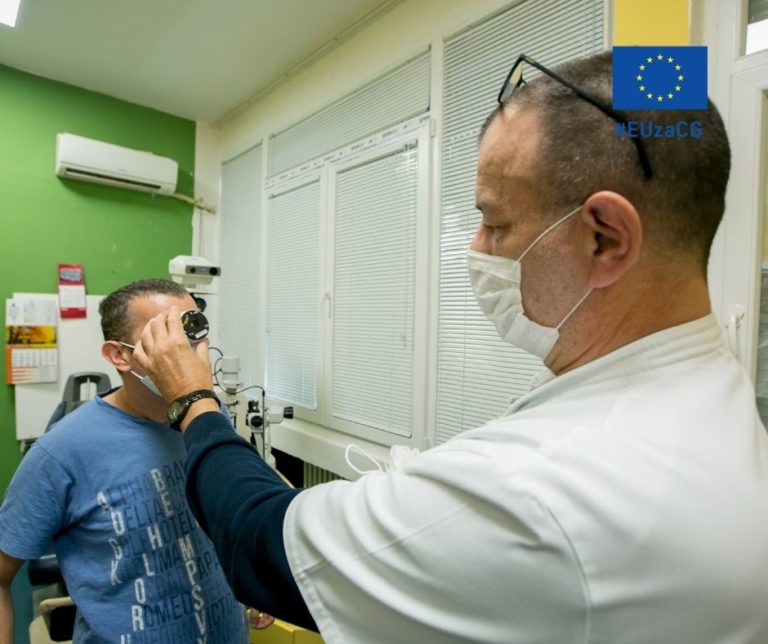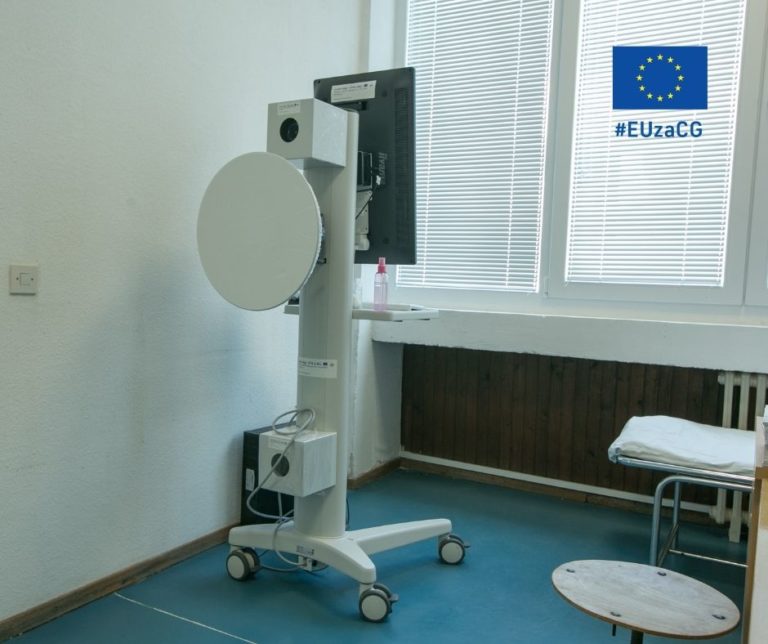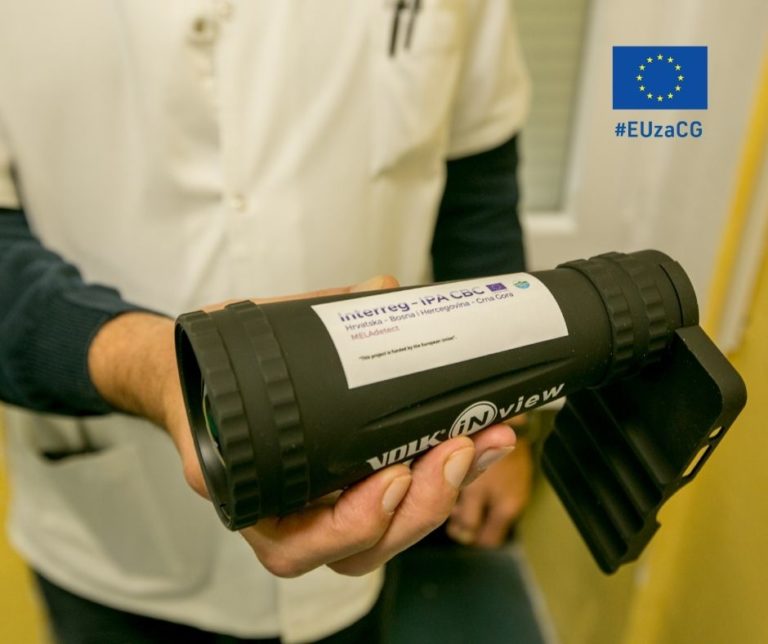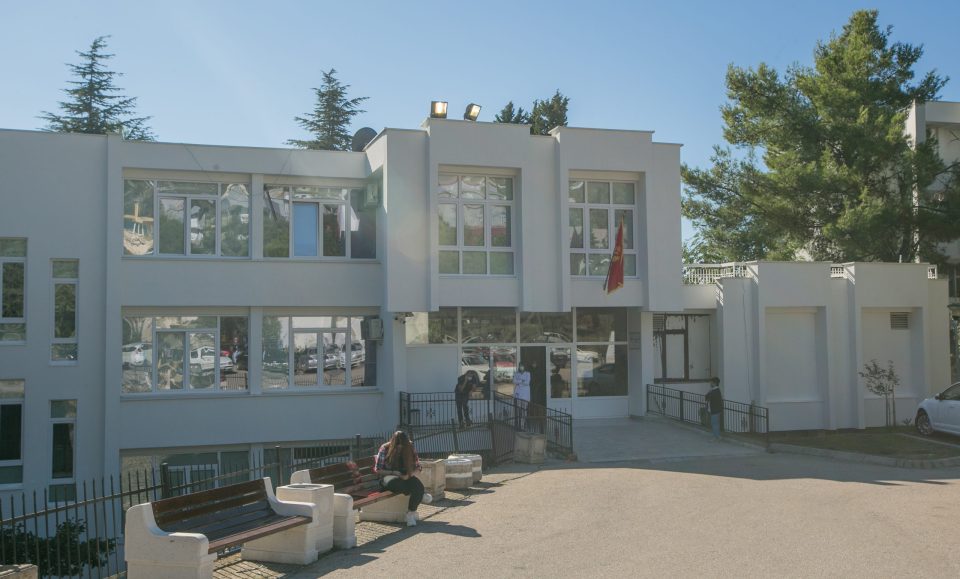The EU provides substantial financial support to cancer prevention and treatment. It does so in order to help more people to live without cancer and enable more cancer patients to be diagnosed earlier and have a better quality of life after treatment.
posted on
- April 5, 2022
MELAdetect: Early Detection of Skin, Mucosal, and Ocular Melanoma
Everyone loves summer. Everyone loves the sun. Everyone loves a bronze hue of the skin. However, excessive sun exposure can lead to serious health problems. MELAdetect, an EU cross-border cooperation project, aims to raise awareness and improve the prevention and treatment of Skin, Mucosal, and Ocular Melanoma through the exchange of knowledge and experiences in the cross-border area of Montenegro, Croatia and Bosnia and Herzegovina.
The holder of the project is the Bar General Hospital, which the EU Info Centre team visited. They explained to us that during the project they organised workshops and lectures on the epidemiology of melanoma, the importance of early detection of melanoma, and new trends in early detection and therapeutic options for its treatment. Dermoscopy and ophthalmoscopy were promoted as methods of early melanoma diagnosis, and educational Info Days were organised for the general public.
“According to the project, three Info Days were planned in each area. We did five here. We went to a rural area, up to Ostros, to an ambulance which is actually a local ambulance of the Health Centre and falls under the Bar General Hospital. While there, we educated the staff and organised workshops,” said Ninela Plamenac, project assistant at the Bar General Hospital.
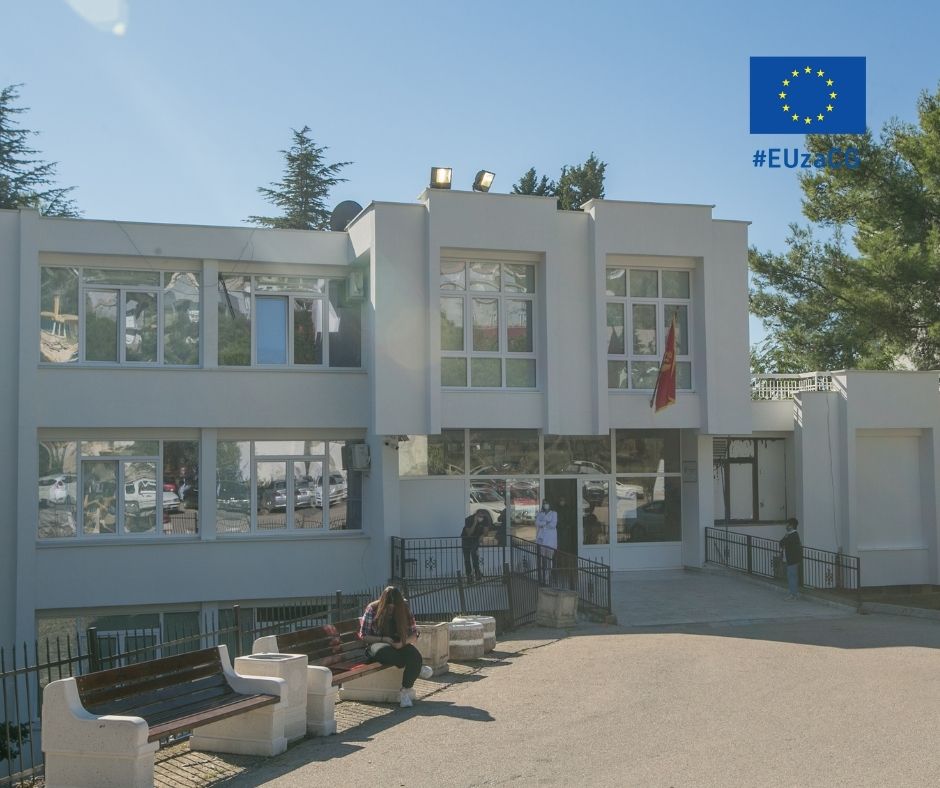
As part of the project, the dermatology clinic of the Bar General Hospital received new modern equipment – a dermatoscope for mapping the whole body and UVB lamps according to WOOD, while the ophthalmology clinic received an indirect ophthalmoscope.
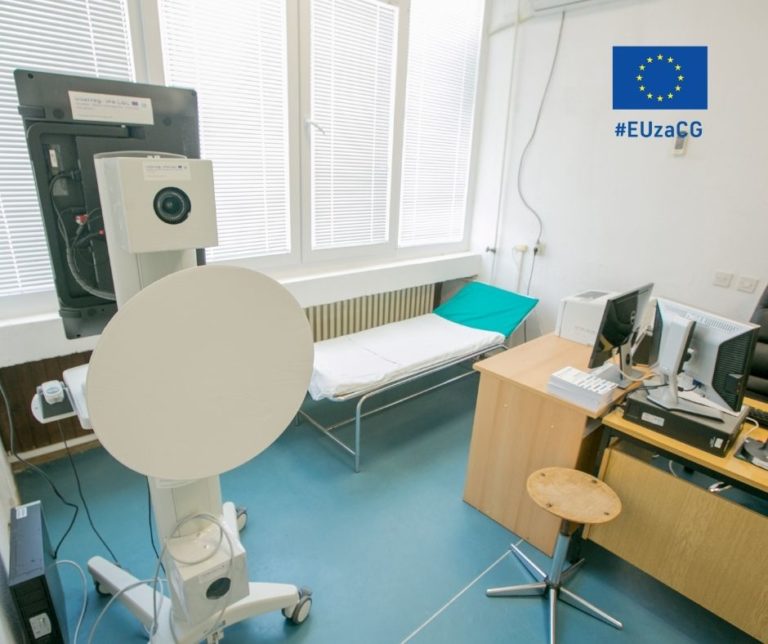
“As part of the project, the Bar General Hospital received a modern dermatoscope – which scans the whole body and has the possibility of comparing images at each subsequent examination – an ophthalmoscope, and a UVB lamp. The device also has an accessory through which each naevus can be monitored individually,” they explain at the hospital.
Skin, Mucosal, and Ocular Melanoma can only be diagnosed by a doctor. They can be recognised, with adequate knowledge, by any healthcare worker, but also by employees in beauty salons. By spreading knowledge, the circle of those involved in the fight against melanoma is expanding.
“As an institution from Montenegro, we were responsible for the accreditation and organisation as far as the Montenegrin part is concerned, and we were obliged to encourage health workers to respond in as many numbers as possible. The project envisaged that 25 health workers would be trained, yet we managed to educate 142 health workers. That shows how much we exceeded the expectations and set goals we had for the project,” says Ninela Plamenac, project assistant at the Bar General Hospital.
The wealth that MELAdetect leaves behind is an established network of health professionals in the cross-border area. MELAdetect and all those who participated in it have created a concrete, sustainable, and innovative approach for the prevention and diagnosis of melanoma.
“All of whom are extremely open in terms of consultations, the sharing of knowledge, the sharing of news, and possible referrals of some patients who need treatment or diagnosed with melanoma or other malignancy. Something you will recognise more than collegially,” says Milan Vukanovic, an ophthalmologist at the General Hospital in Bar.
MELAdetect, a success story about cooperation that knows no boundaries. You can find out more about the project and about the ways to prevent and treat melanoma here.

